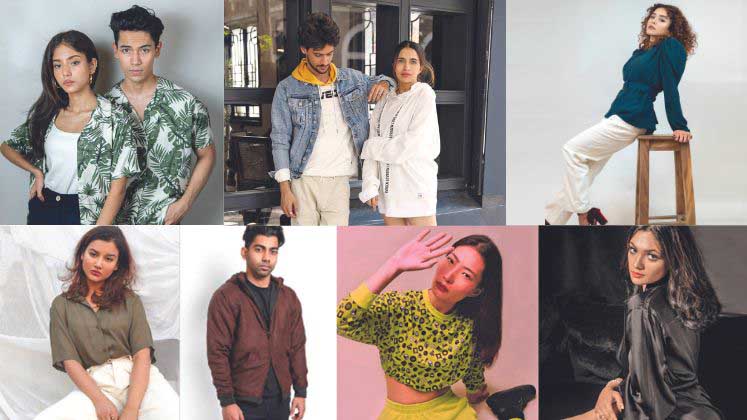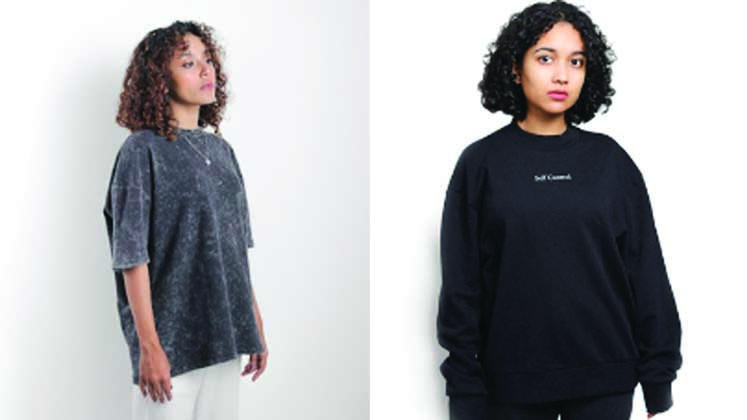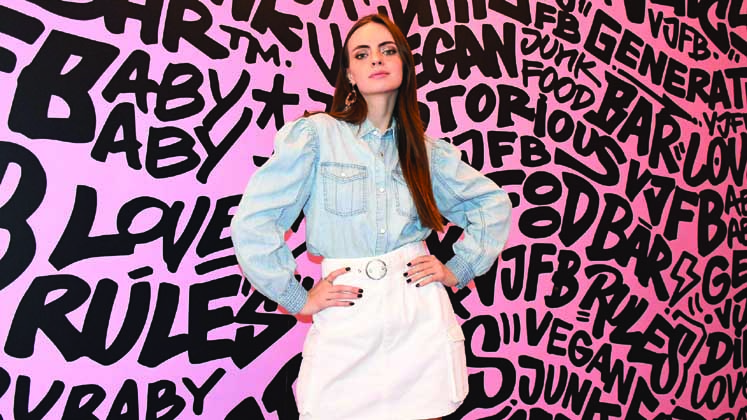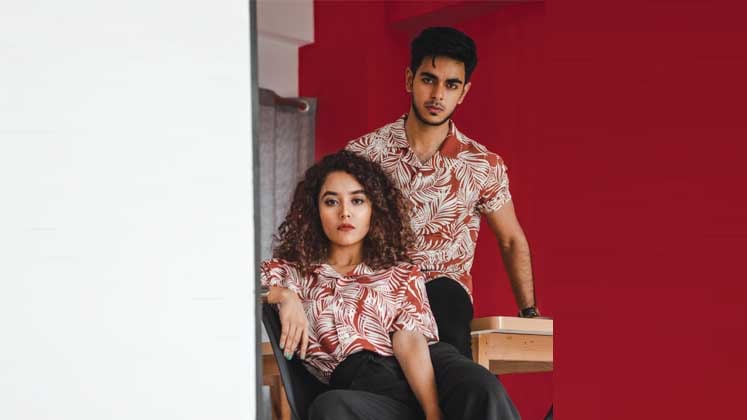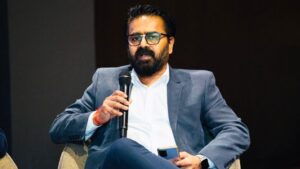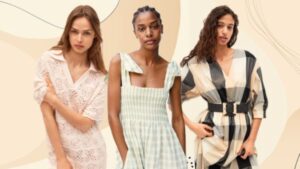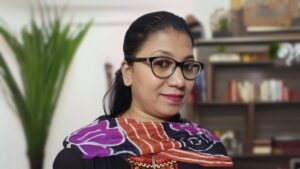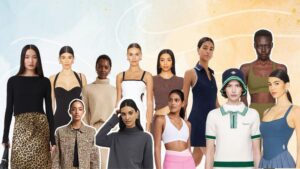Bangladesh is fast emerging as a notable design and creativity hub, with an increasing number of up-and-coming labels flocking the fashion and retail scene with their own homegrown brands – further altering the perception of this South Asian mega manufacturing hub as being limited to just that one term, for the world at large.
In recent years, Bangladeshi youth have taken massive strides in changing the design and fashionscape of the country, taking advantage of the manufacturing excellence that dwells in the country. And, with the growing number of influencers and fashion bloggers based in the region, the promise and power that homegrown brands hold over the audience is strikingly clear.
Apparel Resources (AR) brings to you four such powerful brands and labels with engaging design ideologies and highlights the business strategies that have helped them capture such a discerning segment of this growing market.
Read on to discover.
RÂNOW
Founded by Raniah Dowla Ahmed, RÂNOW is a Bangladesh-based clothing and lifestyle brand that prides itself in offering a diversified product range designed and curated specifically for the people of Bangladesh.
Product assortment
The brand primarily focuses on providing its own take on western designerwear for the women of Bangladesh. Priced between BDT 2,000 to BDT 4,000, what makes the pieces of the label stand out is ‘the very fact that RÂNOW can never be put in a box or limited to one kind of product. With RÂNOW, you never know what to expect because we make sure every single launch offers a completely different theme altogether,’ Raniah states.
With age no bar, RÂNOW caters to a niche set of women who like to flaunt bold, powerful fashion statements and feel empowered within.
Design ideology
One look at RÂNOW’s pieces and you would easily understand why Raniah’s products stand out in the market – the label boasts of one-of-a-kind and exclusive prints that come alive over the garments, telling a story of their own.
“I spend months on the graphic designing process behind each print I make, and I get countless inquiries about them,” Raniah said, adding, “I pay close attention to every tiny detail that goes into my prints, and once you look close enough, you’ll find layers to my prints which symbolise a lot of things that work as a direct reflection of my own personality. Most of the inspiration behind my themes come from my real life experiences.”
Business strategy
Following the drop model, Raniah aims to introduce up to two big launches every year, but since the collections are so different from one another and require months of brainstorming and designing, she bases the launches purely on the drop itself ‘because, (according to Raniah), the drop is what holds the most weight and shakes things up in the market.’
Also, most of RÂNOW’s collections are dropped only once, increasing the exclusivity factor of the brand. This means that, once a certain product is sold out, you may never find another piece again.
“I knew from the start that as I grow older, my brand will evolve with me and that includes never looking back. I believe in experimenting with something new every time I give back to the fashion community,” Raniah explains.
Currently, RÂNOW is available to shop online via Instagram and Facebook, and is in plans to launch an exclusive store in the very near future.
FOMO
Founded by entrepreneur Nafiz Imtiaz Chowdhury, who has, in a short span of time, been able to establish a successful business in the fashion and apparel sector with his sell-out label Guzel, FOMO aims to offer clothing and footwear with a more westernised appeal, as compared to its sister brand.
Based in Dhaka, the brand pays close attention to detail and provides premium customer service to its customers.
Product assortment
Priced between BDT 699 and BDT 3,999, FOMO offers clothing that includes T-shirts, shirts, pants, sweaters and jackets alongside footwear that is priced between BDT 4,500 and BDT 5,000.
The brand follows an international sizing format and manufactures sizes varying from 40 to 44 under its footwear category, and from small to large in case of clothing. A few of the main materials that the brand works with are cotton, viscose, wool and suede, with some of them being created in-house (which is the secret to FOMO’s comfortwear) while the others are outsourced from local markets.
Design ideology
FOMO focuses on bringing minimalistic aesthetics and comfort to its customers while paying utmost attention to stitchwork, patterns and experimentation with various fabrics to create one-of-a-kind super garments.
Business strategy
The brand releases three drop-based collections in a year.
Interestingly, when a specific design has 20 pieces left, the company’s IT system sends a notification to the factory informing them to start production in order to replenish the diminishing stock in time.
FOMO has been investing in and directing its efforts heavily towards proper inventory management for lower lead time, integrated payment and shipping for faster user experience and re-targeting ads to customers for multiple exposures leading to higher conversions.
Going forward, FOMO plans to reach at least 15 countries by the end of 2023, by deploying its proven formula of introducing new product drops every 20 days.
LoveGen
Designed in Spain and manufactured in Bangladesh, LoveGen is a fast-fashion brand that targets the youth of today who want to live on their own terms and invest in stylish clothing.
Inspired by high-street fashion trends across the world, the brand offers uniquely tailored pieces that are created to meet the tastes of an adventurous young generation interested in music and social networking, who are defined as being fun, fast and fabulous!
Design ideology
LoveGen is positioned as a fast-fashion brand that is constantly researching international fashion trends and developing new styles while finding ways to make them affordable for its target market. The brand allows both young men and women to express themselves through clothes for any given occasion.
The brand aims to give its consumers fashion that has a global appeal but at prices, they can afford. “As we travel to different parts of the world, we see that there is a demand for this fashion at this price range. So, we are slowly trying to make the brand global,” Ghulam Sumdany Don, Managing Director of LoveGen Bangladesh, states.
Business strategy
“At LoveGen, we are persistently working towards breaking the barriers to entry through an unconventional strategy that would challenge the status quo of fashion in Bangladesh,” Ghulam explains.
LoveGen’s production facilities are centred around sustainability. Not only does this minimise the impact on the region’s environment, it also helps the brand improve its brand image and recognition. The brand extends this focus when it comes to designing as well.
The brand invests a lot in research and analysis, as a result of which, it has managed to excel in three things, namely – design, faster lead times and amazing prices – all of which have contributed positively towards the impact the brand is creating.
“Our confidence in our strength was further solidified by the positive reception of our customers. Most of their bestsellers were coming from us,” Manish S Chauhan, Chairman of Noize Jeans and Co-founder of LoveGen Bangladesh highlights.
Gorur Ghash
A Bangladesh-based Direct-to-Consumer (DTC) start-up, Gorur Ghash is an online lifestyle and clothing brand which has cemented its space in the market owing to its catchy name and fusion of comedy with fashion.
Nahiyan Naser, Managing Director; Ali Sakhi Khan, Chairman and Fahim Islam Shetab, Director of Gorur Ghash rose the brand to prominence in 2018, owing mainly to the success of their in-house videos.
Today, the brand provides high-quality products at lightning speed all the while tickling consumers’ funny bones with its out-of-the-box design choices.
Product assortment
Gorur Ghash offers a wide range of products ranging from kimonos, cord jackets, hoodies, velvet jackets, turtlenecks, regal silk tops, wrap tops, anti-hairfall pants, button down shirts, band collar shirts, cuban collar shirts to T-shirts and accessories.
The T-shirts and accessories are priced onwards from BDT 400, whilst the remainder of their products start at BDT 1000 for all segments.
Targeting teens and young adults aged between 15 and 30 years old, Gorur Ghash’s branding and marketing strategy projects the brand to be a fun and relatable label which is known for its quirky prints and offbeat slogans.
Design ideology
Humour and reliability serve as the basis of Gorur Ghash’s efforts to make its pieces stand out in the market. The brand further aims at incorporating the latest trends and pop culture references for added relatability.
“We rely heavily on our product design. We try to experiment with unique prints, form factors and fabric. For instance, the corduroy jackets we launched in 2017 stood out in the Bangladeshi market back then because of the use of cord in that specific form factor. On top of all that, humour is an essential element to everything that we do, starting with naming products, creating videos, responding to customers and so on,” Fahim Islam Shetab, Director of Gorur Ghash says.
Business strategy
As the aftermath of Covid-19, Gorur Ghash has been working closely with its supply chain partners, particularly in the delivery and payment sectors, in order to ensure contactless delivery and payment options for its ‘disciples’ (this is how Gorur Ghash likes to address its customers – in sync with the element of humour that the brand stands for).
“This aided in creating a sense of safety amidst our disciples and helped continue sales during the lockdown. Besides, we tried to keep our online audience as engaged as possible via informative videos, in order to encourage browsing and purchasing from Gorur Ghash,” Fahim explains.
The brand also offers quick doorstep delivery of their products, besides having a proper inventory management system, which allows them to be efficient and cut down on operational costs. Gorur Ghash stocks its products in Bangladesh at its own warehouse. Additionally, for its Amazon US operations, the brand stocks its products in Amazon’s warehouse facility.

